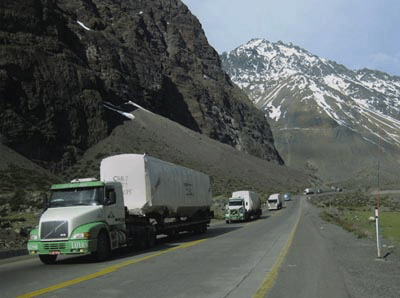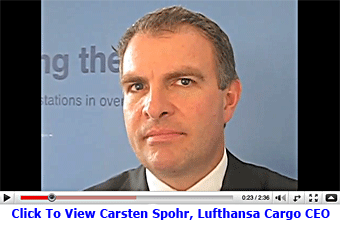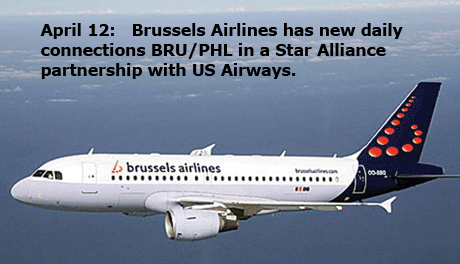Brazil
Logistics Builds Waterway
 (Exclusive
Sao Paulo)—Lots of good story lines out of that Intermodal
South America Conference (ISAC) in Sao Paolo last week but none more
interesting than the hook up between Brazil and the Netherlands to develop
Brazil’s vast inland waterway system and other logistics projects
including ports and airports. (Exclusive
Sao Paulo)—Lots of good story lines out of that Intermodal
South America Conference (ISAC) in Sao Paolo last week but none more
interesting than the hook up between Brazil and the Netherlands to develop
Brazil’s vast inland waterway system and other logistics projects
including ports and airports.
In Sao Paolo as ISAC opened, Netherlands
Minister Public Works and Water Management Minister Camiel Eurlings
(right) signed an agreement to support the inland waterway shipping
initiative.
Also at the event, an inland shipping
container shuttle service was ceremonially inaugurated with the Governor
of Rio Grande do Sul, Yeda Crusius.
Brazil is of key importance to the Port
of Rotterdam and the Port of Amsterdam, which handle a total of 30 million
tons of that country’s products. For this reason, Minister Eurlings
and a Dutch trade delegation fanned out last week to visit various organizations
in the port regions of Rio Grande do Sul and Rio de Janeiro.
“Placing this mode of transport
on a par with road and railway transport, is according it a position
it deserves,” Minister Eurlings noted.
Worth mentioning here is that incorporating
the principles of corridor management into the plan is key feature of
Dutch policy on inland waterway transport.
In the Netherlands, the ports of Rotterdam
and Amsterdam are big-time gateways to Europe where fifty-six percent
of goods entering Holland ports are transported by inland waterway.
In Brazil that figure is not even one
percent of all transport.
“Many of Brazil’s waterways
are highly suited to goods transport with more than forty thousand kilometers
waiting to be used.
“At present Brazil utilizes only
a quarter of that capacity.
“Imagine the possibilities: the
Madeira, the Tapajos, the Lagoa dos Patos.
Even the Tocantins, which was turned into
a fully usable waterway in the nineties and presents opportunities for
Brasilia,” the Minister said.
 “The
way I see it, Brazil is sitting on a goldmine of inland waterways that
offer an attractive option for transport: an option that is efficient,
cheap, safe, clean and reliable.” “The
way I see it, Brazil is sitting on a goldmine of inland waterways that
offer an attractive option for transport: an option that is efficient,
cheap, safe, clean and reliable.”
Elsewhere at ISAC April 8 - Brazilian
project forwarder, Primax Transportes Pesados said that is set to continue
its expansion throughout Latin America with the opening of offices in
Colombia, Mexico and Venezuela this year.
The Sao Paulo-based equipment specialist
clinched representative offices in Peru, Bolivia and Paraguay in 2009,
as it followed Brazilian mining and energy companies into new markets.
The company already has 28 representatives
throughout Latin America but told ACN/FT that it is keen to secure a
presence in the north of the continent to capitalize on key investments
being planned by Brazilian companies in the energy sector there.
Gilberto Nobre, head of the group's international
division said the company was looking to find representatives in Colombia
first in a bid to secure a position on large projects being developed
including the expansion of two Ecopetrol refineries in Cartagena and
Barrancabermeja.
Antonio Carlos Allende
|






